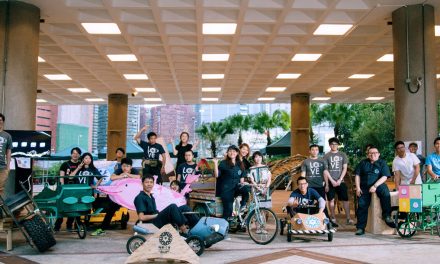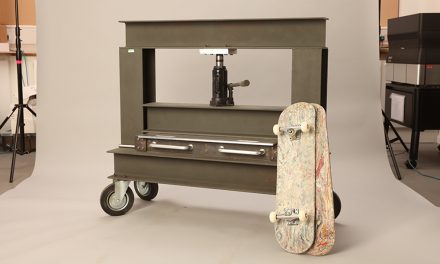Vietnam is one of the fastest-growing economies in Asia with over 6.5% economic growth projection in coming years despite the regional slowdown. Among all the commerce, coffee trade is the major source of income for Vietnam since the early 20th century. Vietnam produces 16% of the world’s total coffee. Over the last decade, more than 1 million tonnes of coffee products had been exported to the world, gaining a maximum USD 3 billion annually.
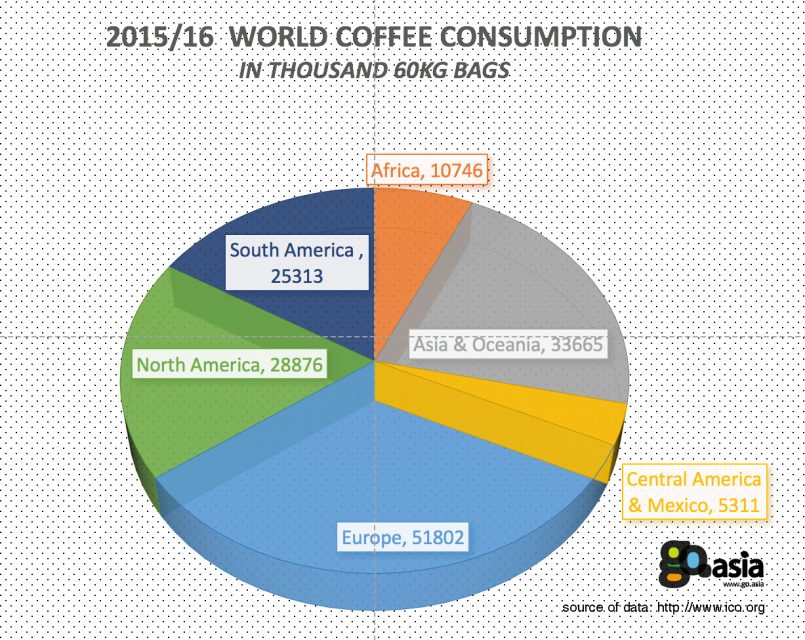
European drink the most coffee, follow with Asian
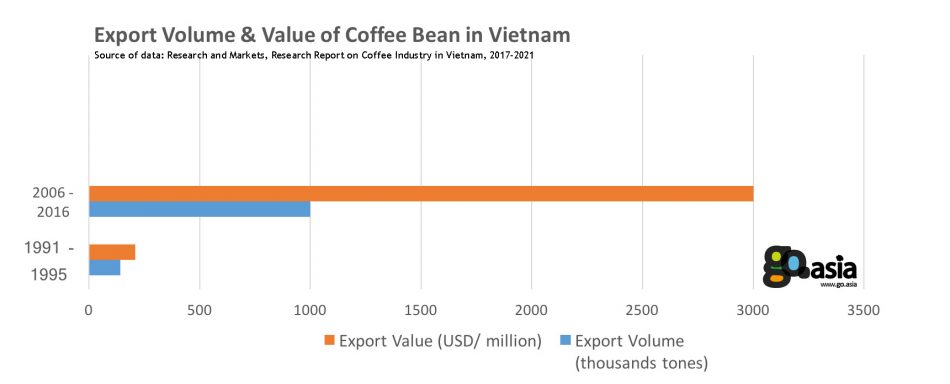
From the 90s, with only 142,000 tonnes, worth USD 210 million annual export volume. To the last decade, exceeded 1 million tonnes, worth exceeding USD 3 billion trade.
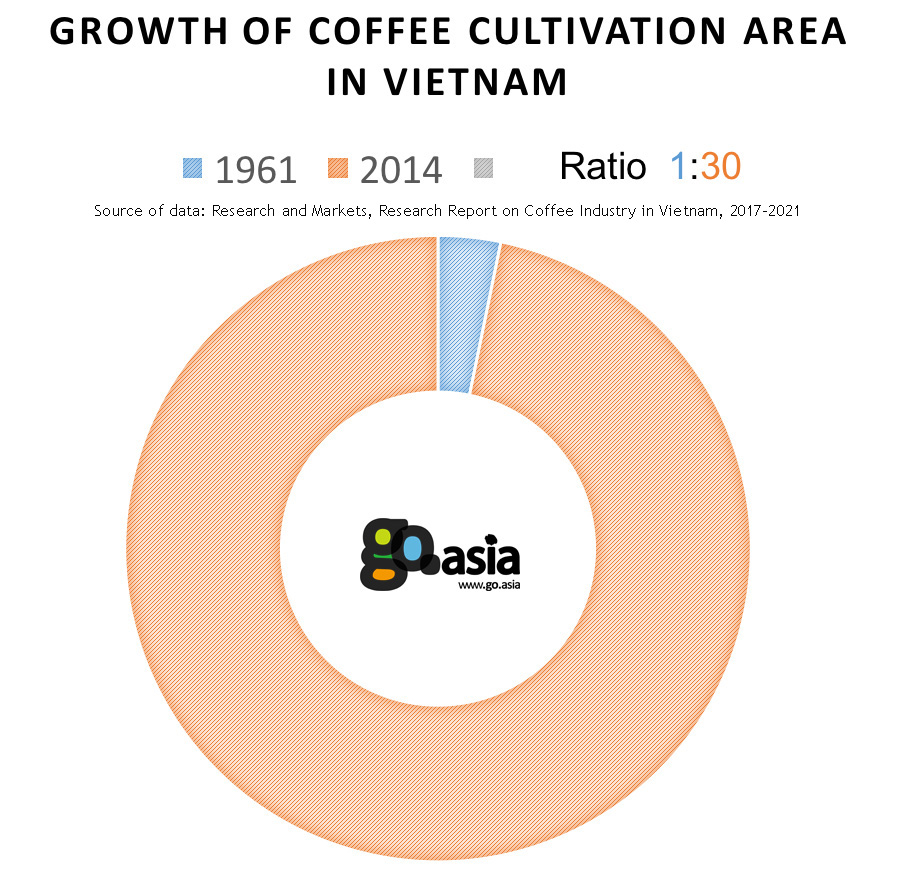
There was a 30 times growth of total coffee cultivation area in Vietnam between 1961 and 2014 (653,000 hectares)
However, like most of the Asia countries and the rest of the world, there is extreme disparity between the rich and the poor in Vietnam. A cup of coffee sold on the street costs less than HKD $4 (USD $0.5)** but still, 4.5% of the employed population lives below HKD $15 (USD $1.9) a day. **Source of Information
Despite the rapid growth of trade and economy, only a few enterprises made their climb to the beanstalk and found their fortune. Poverty, high rate of illiteracy or low education level have always been the social problems in Vietnam. The standard of living of the low-income group is also affected by severe deforestation. According to WWF, nearly 40,000 square miles of forest have been transformed to coffee farms since the 70s of last century. Luckily, local entrepreneurs & experts start looking into these problems. They are easing the social issues with what Vietnam owned most – the coffee bean!
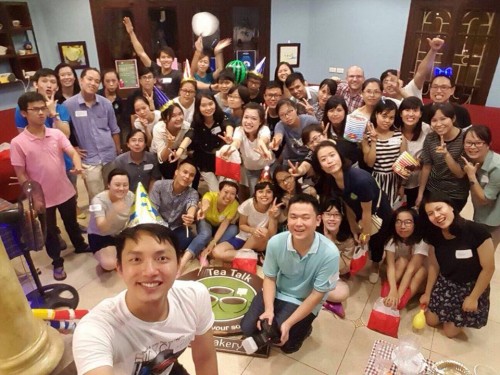
Collaboration among entrepreneurs, community, government & more …
Social enterprises are one of the key contributors seeking a balance between business and community welfare, especially in developing countries where poverty, social inequality and environmental pressures are still troubling. In Vietnam, the government revised the enterprise law in 2014 by offering special treatment on granting license and certificates to social entrepreneurs, making them (local or foreigner) possible to look for funding and support.** The growth of social enterprises in return benefits the community as a whole. **Source of Information

Tea Talk Café – A café beyond serving a cup of Vietnamese coffee
Tea Talk Café is an innovative social enterprise. It creates employment opportunities for young social workers in Hanoi where related jobs are limited, though the immense social needs. The concept is to provide a place linking like-minded together to share ideas and even news about recruitment opportunity. This social worker network benefits fresh graduates particularly.

Youth employment started here
All these ideas came from the founder’s personal experience and Vietnamese culture. Social work in Vietnam is about 30 years behind in terms of professional development. Fresh graduates especially who are not strong in the use of English might face difficulties in getting employment. While local NGOs tend to employ those can speak English with working experiences, someone somewhere needs to bridge this gap.

For this reason, Tea Talk Café offers a temporary job for fresh graduate. By working in the café, local young people will have the opportunity to communicate with English speaking foreign customers and practise their English on daily basis. The café owner will also recommend their well-trained employees to NGOs for employment. This cycle will keep running with a nice cup of Vietnamese coffee.
Source of Information & Photo: Tea Talk Cafe
Coffee Crisis under Global Climate Change: 3 ways taken in Vietnam
Owing to the exploding coffee culture in the globe, coffee-related activities are popular since the 1990s, such as coffee plant agriculture, trading, social enterprise as well as local consumption, contributing to the social-economic golden age in Vietnam. However, worryingly Vietnam’s coffee crops are in danger under the threat of global climate warming. CIAT research shows by 2050 the total suitable area for coffee growth in Vietnam will fall from 84,326 square kilometres to 46,473 square kilometres.
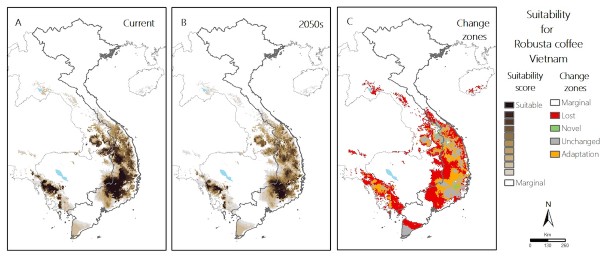
Tran Ban Hung from Fairtrade Asia and Pacific’s associate for Vietnam suggested the possible solutions from 3 perspectives: –

Investor / Government Perspective: Introduced by FAO (Food and Agriculture Organization of the United Nations), CSA is an approach for developing agricultural strategies to secure sustainable food security under climate change. It provides the means to help investors to identify agricultural strategies suitable to their local conditions. E.g. Assisting small-medium size farmers training of crop rotation to maintain soil fertility, tools and funding for drainage system development.
Farmers’ Perspective: In face of the prolonged drought season in future, providing shade for coffee beans is vital, Fairtrade Asia is working to educate farmers on Canopy Plantation – canopy trees can not only provide relief for coffee plants from the blistering Central Highlands sun; they can also bring in extra money for growers. For example, some farmers has started with canopy trees like durian as alternative income apart from coffee growing.
Consumer Perspective: Educate consumers to recognise and support local fair trade brands and environmental friendly products. John Connor, CEO of the Climate Institute said, “As coffee drinkers, we should educate ourselves about these issues and make sure we choose brands that are ethically produced in terms of climate change.”


